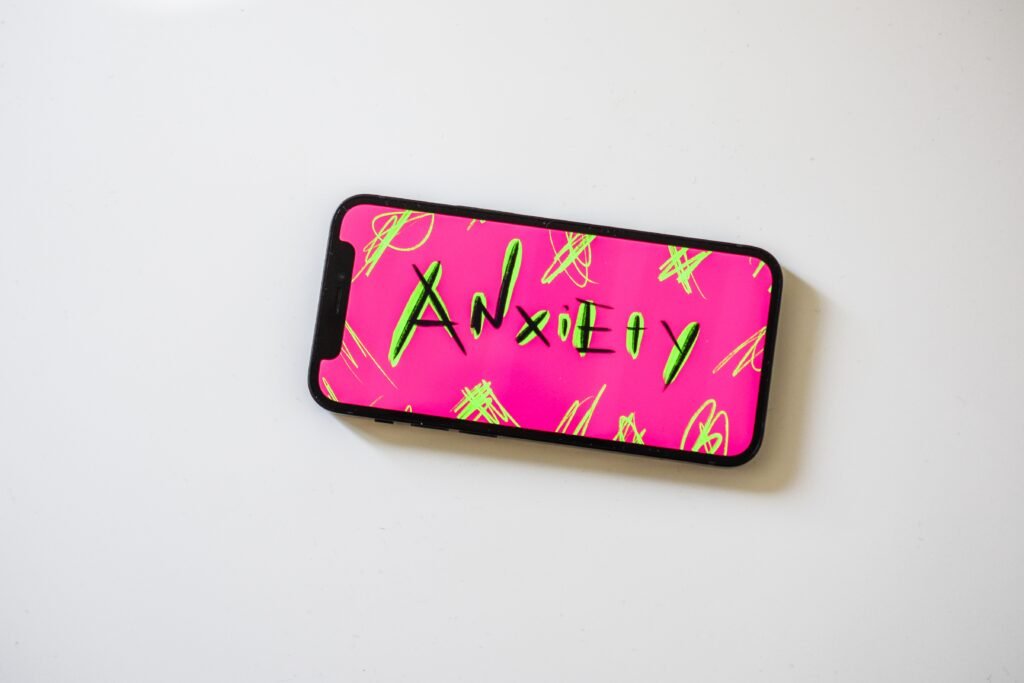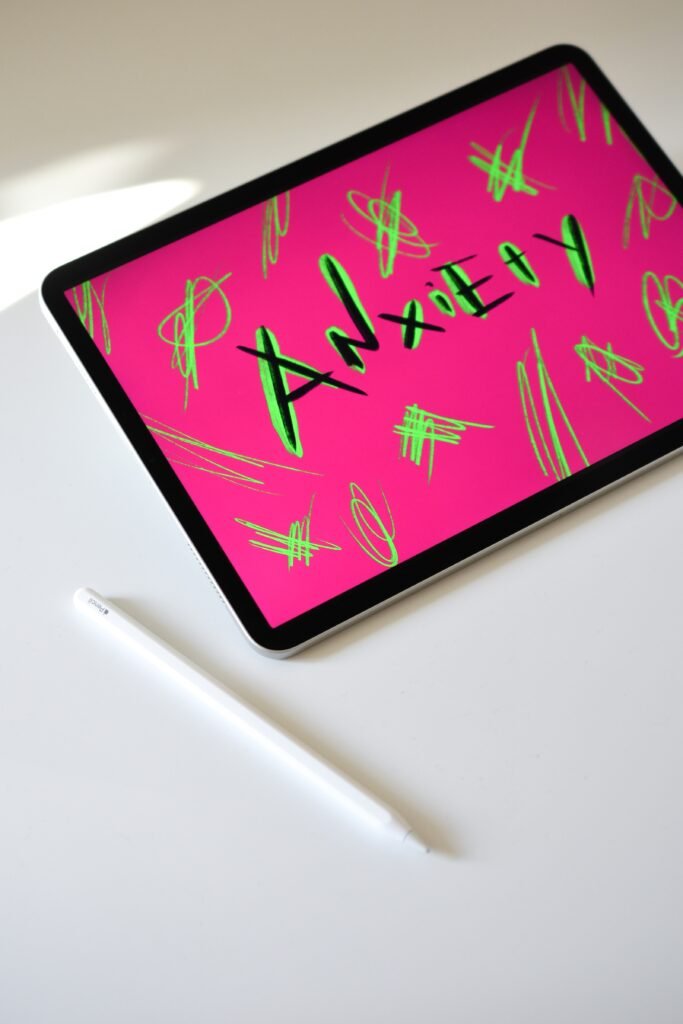Are you tired of dealing with anxiety and looking for a natural remedy? If so, you may have heard about Ashwagandha, a popular herb in Ayurvedic medicine known for its potential anxiety-reducing effects. But how long does it take for Ashwagandha to actually work and provide relief? In this article “How Long Does Ashwagandha Take To Work For Anxiety”, we will explore just that – the timeframe within which Ashwagandha can start showing its benefits for anxiety. So, if you’re curious to find out when you can expect to see results from this herbal supplement, keep reading!
Understanding Ashwagandha
What is Ashwagandha?
Ashwagandha, also known as Withania somnifera, is an herb that has been used in traditional Indian Ayurvedic medicine for centuries. It is renowned for its adaptogenic properties, meaning it helps the body adapt to stress and promotes overall well-being. Ashwagandha is believed to have a wide range of health benefits, including reducing anxiety symptoms.
Mechanism of Action
The exact mechanism by which ashwagandha works to alleviate anxiety is not fully understood, but research suggests that it may involve its effects on neurotransmitters and the stress response system. It is thought to act on the GABA receptors in the brain, which are involved in regulating anxiety. Additionally, ashwagandha has been shown to reduce levels of cortisol, the stress hormone, and promote a sense of calm and relaxation.
Role in Anxiety Treatment
Ashwagandha has gained attention as a potential natural remedy for anxiety. While it is not a substitute for professional mental health treatment, it may complement existing therapeutic approaches. It is important to understand the factors that can affect the effectiveness of ashwagandha for anxiety.
Factors Affecting Ashwagandha’s Effectiveness
Dosage
The dosage of ashwagandha can vary depending on various factors, such as the individual’s age, weight, and overall health. It is recommended to start with a lower dose and gradually increase it if needed. Consulting with a healthcare professional or following product-specific guidelines can help determine the appropriate dosage for you.
Quality and Purity of the Supplement
The quality and purity of the ashwagandha supplement can significantly impact its effectiveness. It is essential to choose a reputable brand that adheres to good manufacturing practices and conducts third-party testing for purity and potency. This ensures that you are consuming a high-quality product that contains the desired amount of active compounds.
Individual Differences
Each person’s response to ashwagandha may vary based on their unique biology and genetic makeup. While ashwagandha has shown promising results in reducing anxiety symptoms for many individuals, it may not work the same way for everyone. It is essential to be patient and give it sufficient time to observe its effects on your specific condition.
Other Medications or Supplements
If you are currently taking any medications or other supplements for anxiety or other health conditions, it is crucial to consider potential interactions. Ashwagandha may interact with certain medications, such as sedatives or immunosuppressants. Consultation with a healthcare professional is advised to ensure there are no adverse effects or drug interactions.

Clinical Research on Ashwagandha for Anxiety
Study 1: Ashwagandha’s Impact on Anxiety
A study published in the Journal of Clinical Psychology examined the effects of ashwagandha on anxiety symptoms in individuals with generalized anxiety disorder. The results showed a significant reduction in anxiety levels compared to the placebo group. Participants who received ashwagandha reported improved overall well-being and a reduction in anxiety-related symptoms.
Study 2: Effectiveness Compared to Placebo
In another study published in the Journal of Alternative and Complementary Medicine, researchers compared the effectiveness of ashwagandha to a placebo in individuals with mild to moderate anxiety. The findings indicated that ashwagandha supplementation led to a significant reduction in anxiety scores compared to the placebo group. These results suggest that ashwagandha may have potential as an alternative treatment for anxiety.
Study 3: Comparative Analysis with Other Treatments
A systematic review published in the Journal of Ethnopharmacology analyzed multiple studies to compare the effects of ashwagandha with other anti-anxiety treatments. The review concluded that ashwagandha was comparable to conventional anxiolytic drugs and had a more favorable safety profile. However, further research is needed to determine its long-term efficacy and optimal dosage.
Timelines for Ashwagandha’s Effects on Anxiety
Short-Term Results
Some individuals may experience a reduction in anxiety symptoms shortly after starting ashwagandha supplementation. However, it is essential to note that the onset and magnitude of effects can vary. Factors such as dosage, individual differences, and the severity of anxiety symptoms can influence the timeline of noticeable improvements.
Medium-Term Effects
With continued use of ashwagandha over several weeks, many individuals may observe a gradual reduction in anxiety symptoms. The herb’s adaptogenic properties help regulate the body’s stress response, leading to increased resilience and a greater ability to cope with anxiety triggers.
Long-Term Benefits
Long-term use of ashwagandha may provide sustained benefits for anxiety management. As the herb supports overall well-being, it can contribute to a more balanced mental state, reduced stress, and improved emotional resilience. It is important to maintain consistent use as directed to maximize the potential long-term benefits.

How to Take Ashwagandha for Anxiety
Recommended Dosage
The recommended dosage of ashwagandha for anxiety can vary depending on the specific product and individual needs. As a general guideline, starting with a low dose, such as 300-500 mg of standardized extract, once or twice a day is common. It is advisable to follow the manufacturer’s instructions or consult with a healthcare professional for personalized dosage recommendations.
Potential Side Effects
In general, ashwagandha is considered safe for most people when taken within the recommended dosage range. However, some individuals may experience mild side effects, such as drowsiness, upset stomach, or headache. It is important to discontinue use if any adverse reactions occur and consult a healthcare professional if symptoms persist or worsen.
Interactions with Other Substances
Ashwagandha may interact with certain medications or substances, including sedatives, immunosuppressants, and thyroid medications. It is crucial to inform your healthcare provider about any medications or other herbs/supplements you are taking to minimize the risk of potential interactions. A healthcare professional can provide personalized guidance based on your specific situation.
Ashwagandha vs. Other Anxiety Treatments
Ashwagandha vs. Pharmaceuticals
When comparing ashwagandha to pharmaceuticals commonly prescribed for anxiety, several differences become apparent. Ashwagandha often takes longer to show noticeable effects compared to prescription medications, which may provide more immediate relief. However, ashwagandha generally has a lower risk of side effects and a more favorable safety profile than pharmaceuticals. It is important to discuss treatment options with a healthcare professional to determine the most suitable approach for your specific needs.
Ashwagandha vs. Other Herbal Supplements
Ashwagandha stands out among other herbal supplements for anxiety due to its adaptogenic properties and extensive history of traditional use. While other herbs may also have potential benefits for anxiety, such as lavender or passionflower, ashwagandha’s unique mechanisms of action set it apart. It is advisable to consult with a healthcare professional to explore the best herbal options for your individual circumstances.

Real Life Experiences
User Reports and Reviews
Numerous personal reports and reviews suggest that ashwagandha has been effective in reducing anxiety symptoms for many individuals. Users have reported feeling calmer, experiencing less worry, and having improved sleep quality. While individual experiences can vary, these positive testimonials highlight the potential of ashwagandha as a natural anxiety remedy.
Psychological and Physiological Effects
Beyond anecdotal experiences, research has also explored the psychological and physiological effects of ashwagandha. Studies have demonstrated its ability to improve mood, reduce stress levels, and enhance cognitive function. Additionally, ashwagandha has been found to support a healthy inflammatory response, which may have implications for anxiety management.
Effectiveness in Different Anxiety Disorders
While research on ashwagandha’s effectiveness in specific anxiety disorders is still emerging, preliminary evidence suggests it may be beneficial in various conditions. Studies have shown positive results in generalized anxiety disorder, social anxiety disorder, and panic disorder. Further research is needed to elucidate the optimal usage and potential benefits in different anxiety disorders.
Conclusion: How Long Does Ashwagandha Take To Work For Anxiety
Ashwagandha as a Viable Treatment Option
Ashwagandha shows promise as a viable treatment option for anxiety due to its adaptogenic properties and positive effects on neurotransmitters and stress hormones. While individual responses may vary, clinical research and user reports support its potential effectiveness in reducing anxiety symptoms. Incorporating ashwagandha into a comprehensive anxiety management plan, alongside professional guidance, may offer additional support.
Expected Timeframes for Anxiety Relief
The timelines for experiencing anxiety relief with ashwagandha can vary from individual to individual. Some may notice improvements in the short-term, while others may require a longer duration of consistent use to observe significant changes. Patience and persistence are key when using herbal supplements, as they often require time to exert their beneficial effects. It is essential to monitor your progress and consult with a healthcare professional if you have any concerns.
Final Thoughts on How Long Does Ashwagandha Take To Work For Anxiety
Consulting a Healthcare Professional
While ashwagandha is generally considered safe for most individuals, it is advisable to consult with a healthcare professional before starting any new supplement, especially if you have underlying health conditions or are taking other medications. They can provide personalized recommendations and guidance based on your specific needs and ensure the safe integration of ashwagandha into your anxiety management plan.
Considering Lifestyle Changes
In addition to incorporating ashwagandha into your routine, it is important to consider lifestyle changes that may support overall well-being and anxiety reduction. These may include regular exercise, stress management techniques, adequate sleep, balanced nutrition, and engaging in activities you enjoy. A holistic approach to anxiety management can enhance the potential benefits of ashwagandha.
Importance of Patience and Persistence
When using ashwagandha or any other natural remedy for anxiety, it is crucial to have realistic expectations and practice patience and persistence. Herbal supplements often require consistent use over an extended period to observe significant improvements. Stay committed to your anxiety management plan and monitor your progress along the way.
Frequently Asked Questions:
1. How long does it take for ashwagandha to work for anxiety? The onset of ashwagandha’s anxiety-relieving effects varies, but many users report a positive shift within a few weeks of consistent use.
2. Is 3000 mg of ashwagandha safe? While ashwagandha is generally considered safe, it’s crucial to adhere to recommended dosages. Consultation with a healthcare professional can provide personalized guidance.
3. Is it OK to take ashwagandha every day? Yes, ashwagandha is often taken daily for its cumulative benefits. However, individual responses may vary, and moderation is key.
4. Can you feel ashwagandha the first time you take it? Some individuals may notice subtle changes in mood or stress levels after the first dose, while others might experience more noticeable effects over time.
5. Can ashwagandha cure my anxiety? Ashwagandha is not a cure for anxiety, but it has been shown to help manage stress and anxiety symptoms for many individuals.
6. Can ashwagandha reset anxiety? Ashwagandha is known for its adaptogenic properties, helping the body adapt to stressors. While it doesn’t “reset” anxiety, it may contribute to a more balanced stress response.
7. Can I take 5000 mg of ashwagandha a day? Such high doses are not commonly recommended. It’s crucial to follow suggested guidelines and consult with a healthcare professional to determine an appropriate dosage.
8. Is 6000mg of ashwagandha too much? A dosage of 6000mg exceeds typical recommendations. It’s essential to prioritize safety and consult with a healthcare provider for personalized advice.
9. Does ashwagandha numb emotions? Ashwagandha’s impact on emotions varies among individuals. It is more commonly associated with promoting a sense of calm rather than numbing emotions.
10. What is more powerful than ashwagandha? Rhodiola, Holy Basil, and L-theanine are some herbs and supplements with stress-relieving properties. However, individual responses can differ, and consulting a healthcare professional is advisable.
11. What happens if you take ashwagandha for more than 3 months? Extended use of ashwagandha is generally considered safe. However, it’s wise to monitor for any changes and consult with a healthcare professional for ongoing guidance.
12. Can I take 2 ashwagandha pills at once? Following recommended dosages is essential to avoid potential side effects. Consulting with a healthcare professional ensures safe usage.
13. Why can’t I sleep after taking ashwagandha? Ashwagandha’s impact on sleep can vary. If sleep disturbances persist, it’s advisable to adjust dosage or timing, or consult with a healthcare provider.
14. Why do I feel weird after taking ashwagandha? Individual responses to supplements differ. Feeling “weird” could be a personal reaction, and adjusting the dosage or discontinuing use may be necessary.
15. Is ashwagandha worth it? Many individuals find ashwagandha beneficial for stress management. Assessing its worth depends on individual experiences and health goals.
16. Does ashwagandha work immediately for stress? While some users report immediate calming effects, ashwagandha’s full impact on stress often unfolds gradually over weeks.
17. Can I take ashwagandha forever? Long-term use of ashwagandha is generally safe for many people. However, periodic breaks or professional advice can help assess continued usage.
18. Does ashwagandha stop you from overthinking? Ashwagandha’s calming properties may contribute to reduced overthinking for some individuals, promoting a more balanced mental state.
19. How long does it take for ashwagandha to take your emotions? Individual responses vary, but many users report a positive impact on emotional well-being within a few weeks of consistent use.
20. How does ashwagandha calm you? Ashwagandha influences stress response pathways, including cortisol regulation, contributing to a sense of calm and relaxation.
21. Does ashwagandha affect serotonin? While ashwagandha’s precise impact on serotonin is not fully understood, it is believed to modulate neurotransmitters, potentially influencing mood.
22. How does ashwagandha increase dopamine? Ashwagandha’s adaptogenic properties may indirectly support dopamine regulation, contributing to improved mood and stress response.
23. Can I take ashwagandha on an empty stomach? Yes, ashwagandha is often well-tolerated on an empty stomach, but individual preferences and sensitivities may vary. Adjusting based on personal comfort is advisable.